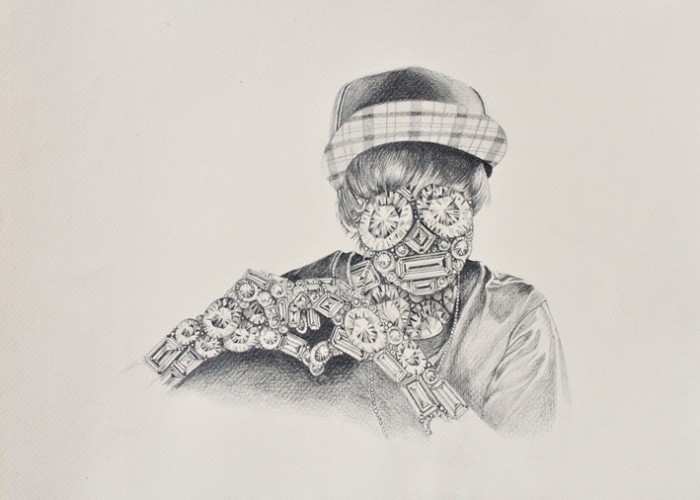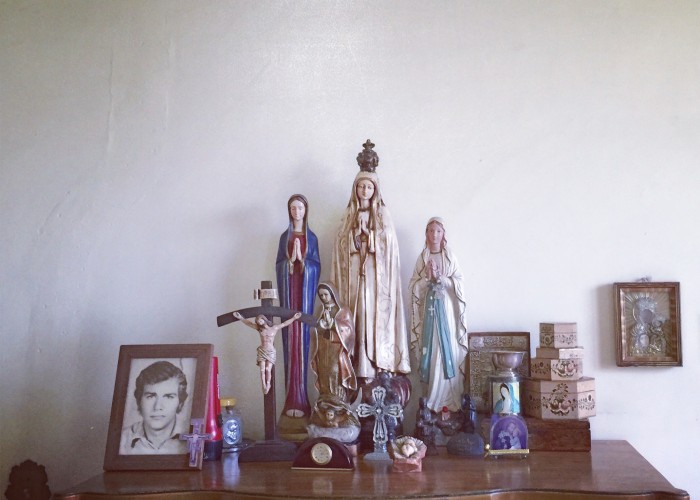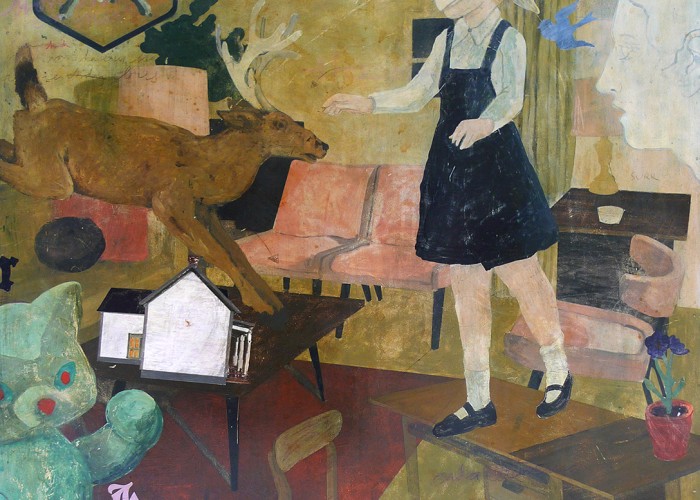Yolanda Castaño
translated by Carys Evans-Corrales
“What’s wrong here is that we don’t know
how to sell ourselves,” your fellow tenants
would always complain.
But when that guy who really had a handle on it
moved into Apartment B, fifth floor,
the whole building soon began to stone him from their little
balconies.
A cowering disc. Appropriating hens.
If all of our imaginary fades away, where then
are the organs with which we forget?
To raise, it took multitudes;
to demolish: just a handful of folks.
*
PRETENDING THAT THE PAIN SHE FEELS IS PAIN
My looks suggest I like
things that I do not.
Everyone speaks through
closed lips.
As does this.
The walls of a grotto where, ten thousand years ago,
someone sullies the natural essence of the stone.
Coins, alternating current,
a girl born with beauty in her genes,
pock-marked by hang-ups.
Like an orgasm in Hedy Lamarr, like Nikola Tesla’s eyes.
A country where one needn’t be,
but can merely
appear to.
A peeling away of gloves,
a touch of spice, the most prestigious
of all dubbing schools.
Capital is the nightmare
of being caught in our symbolic capacity.
The most flattering of all: mortuary makeup.
Years of work turned into equestrian granite.
An industry of poverty, wolfram in kitchen gardens.
Like an ardent body, aware but
feigning innocence.
Cheap false eyelashes, an image
identical to itself.
Like political poetry confused
with a selfie in the bathroom mirror.
The metonymy of evil.
The normative wrenched.
A set stage, a menu, an emergency escape from the fires of discourse.
Something whose roots stretch out to the air and longs
to return to the soil, once time
has elapsed since it burst into light—
like the eyes in potatoes.
The poem’s gaze is like this too:
worker ants in single file,
flattened forever
in timeless lines,
shreds of gestures
that look like
something else.
* *
Read this in Galician
* *
Image: “Evita” by Grillo Demo, courtesy of miau miau
[ + bar ]
I’ve Lost Everything I Loved (excerpt)
from J’ai perdu tout ce que j’aimais by Sacha Sperling translated by Addie Leak
I had decided that my name would be Sacha Sperling and... Read More »
Islands
Gabriela Poma
The sleeping pills had finally worn off.
Her left eye opened, a slit, and she remembered to breathe.
Yo no entiendo nada de esto.
The world seemed... Read More »
The Internet as Novel
On Carlos Labbé’s Piezas secretas contra el mundo (Periférica 2014)
Samuel Rutter
A recent interview in El País identified Carlos Labbé (Santiago de Chile, 1977) as a writer at... Read More »
Love
Zhang Ailing translated by Qiaomei Tang
It is true.
There was a village. There was a girl from a well-to-do family. She was a beauty. Matchmakers came, but... Read More »








 sending...
sending...